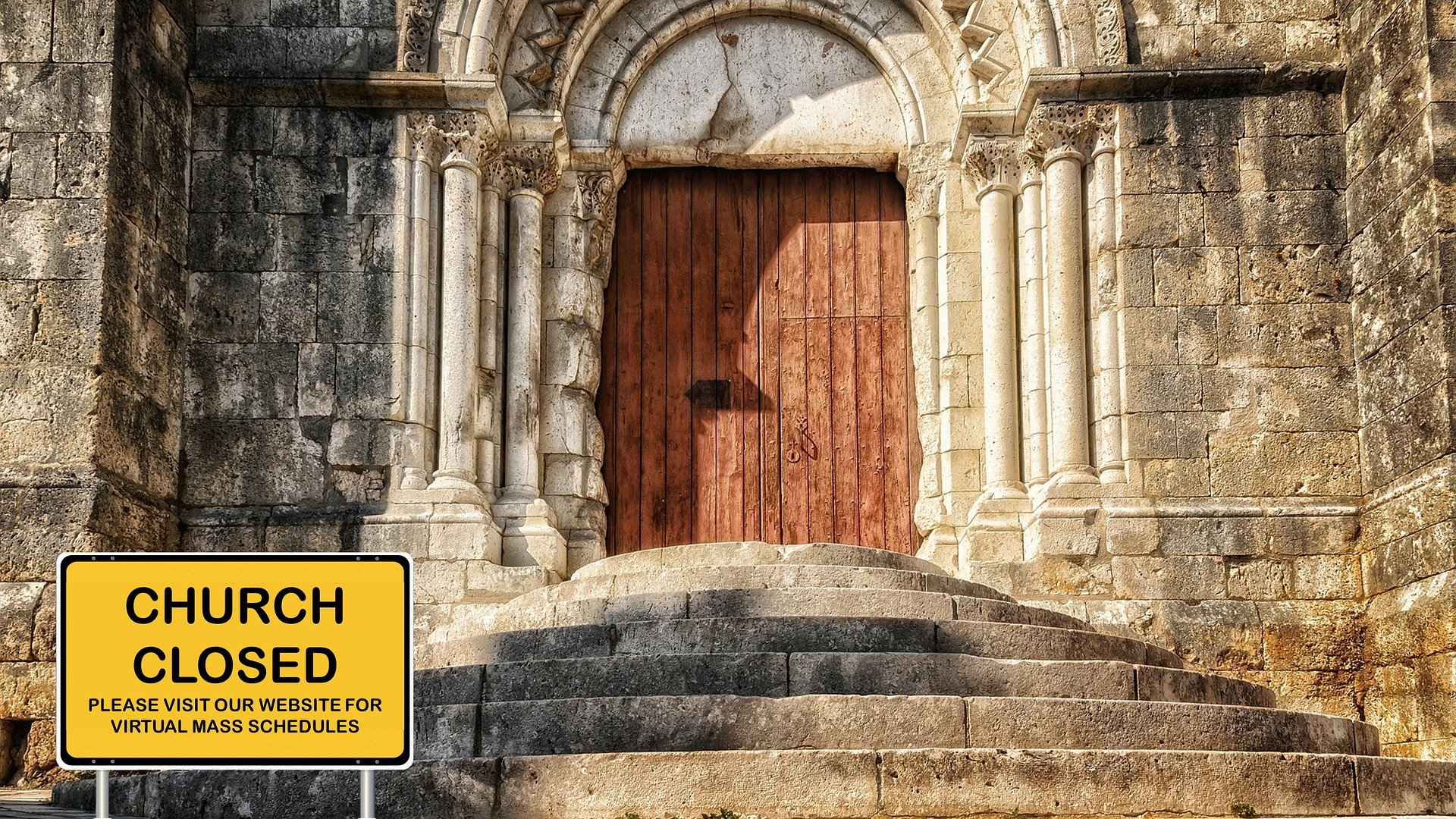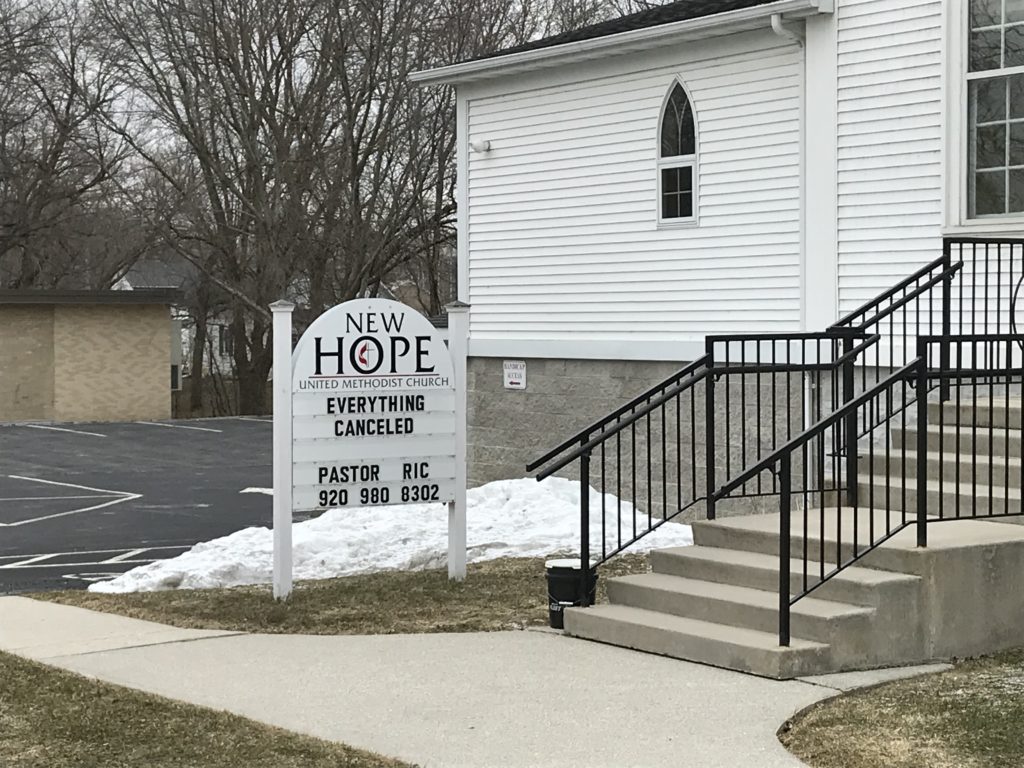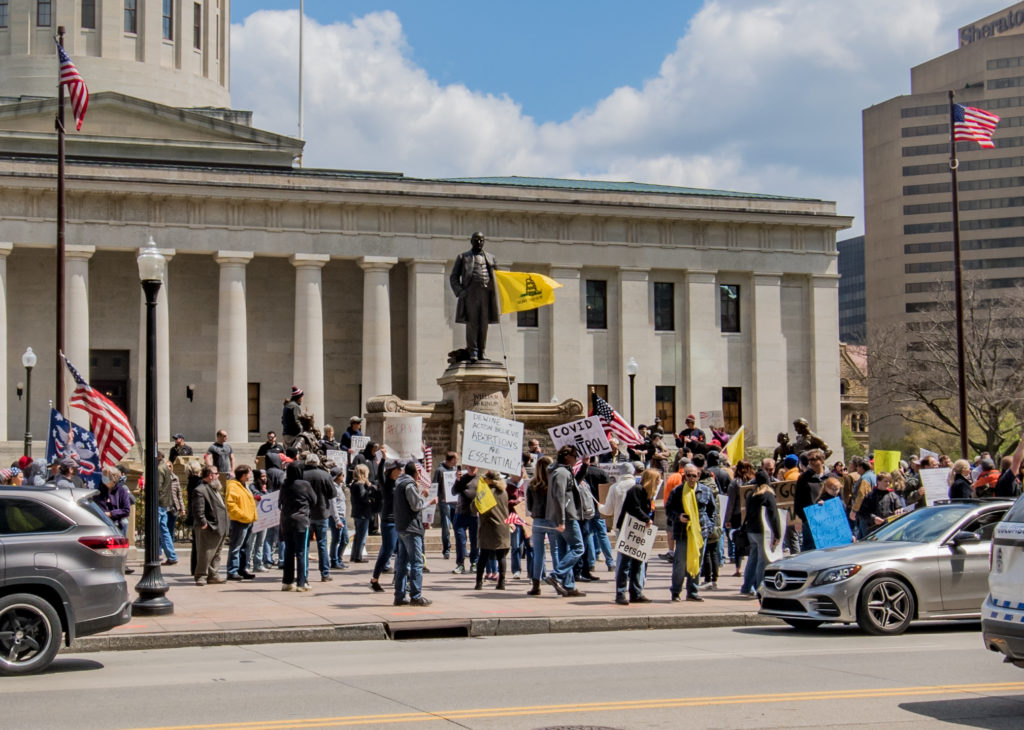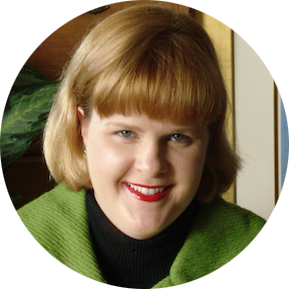
Religious Freedom and Subsidiarity in the Coronavirus Pandemic
M. Christian Green
This article is part of our “Reflecting on COVID-19” series.
If you’d like to check out other articles in this series, click here.
Congressman Clay Higgins, representing Louisiana’s Third Congressional District, recently drew attention for his response to the COVID-19 pandemic. First, the congressman addressed a letter to Louisiana’s Governor John Bel Edwards decrying and denouncing restrictions on group gatherings as a violation of freedoms of religion and assembly under the First Amendment to the U.S. Constitution. Then, Congressman Higgins followed this letter by posting to his congressional Facebook page a self-made video, which contained a further diatribe against Governor Edwards’s stay-at-home order mandating the closure of non-essential businesses ― at one point uttering the plaintive cry, “It’s just a virus, man!”
One can certainly question Congressman Higgins on the merits of his concerns. Most churches in the state closed down their services and gatherings in response to the pandemic. In hierarchically structured churches, the closure orders typically came from the highest levels within the church. Likewise, many businesses began to reduce hours or shut down, and the public began to develop a new appreciation for the labor of hitherto underpaid and unacknowledged workers in grocery stores, restaurants, pharmacies, and other “essential” workers.
But from the twin perspectives of law and religion, it is worth interrogating these questions of religious freedom and the state government mandates further. This is especially true given the fact that Congressman Higgins’s early remarks were followed by the notable and repeated defiance of the order against large gatherings by one Louisiana church. This is complicated further by the fact that Louisiana, like many Southern states, has a historically complex but strong political culture of states’ rights and resistance to federal government of late, even as these states have disproportionately drawn for decades on federal funding to support their most basic state government functions.
Both topics, particularly within the overall context of the pandemic, also pertain to a topic that we will be taking up shortly at Canopy Forum: the relationship between privatization of public functions, an issue that has cropped up in a number of different contexts in the last few decades. This includes former House Speaker Newt Gingrich’s “Contract with America” and the devolution of power to the states debates of the 1990s; the use of private mercenary forces alongside the U.S. military in the wars in Afghanistan and Iraq in the 2000s; and the rise of private prisons including those used for immigrant detention in the late 2010s. Now the U.S. (and presumably other nations) finds itself debating which between the federal, state, and private sectors will save us from COVID-19.
When it comes to religious freedom in a pandemic, particularly freedom of religious association ― as has already been explored in these Canopy Forum pages in an essay by Robin Fretwell Wilson, Brian Smith, and Tanner Bean that has drawn international attention ― the power of the state to protect its citizens trumps religious and most other freedoms in times of distress. Most international human rights documents and national constitutions around the world — the U.S. excepted — contain fairly standard and uniform limitations clauses on basic rights, typically, to “protect public safety, order, health, or morals or the fundamental rights and freedoms of others.”
Political and theological progressives might actually join conservatives such as Congressman Higgins in being concerned for freedoms of religion and association in the context of a global pandemic. After all, the pandemic has been accompanied by a push to authoritarianism in some quarters of the world. We see this even in the Trump regime, with its recent proposed limits on habeas corpus rights and the right to travel, among other restrictions. However, in Louisiana and other jurisdictions ― but for a few notable outliers ― it was the churches themselves, along with other houses of worship, who closed their congregations voluntarily. Where they did not, as in the notorious example of Louisiana’s Pastor Tony Spell of the Life Tabernacle Church, the results have been bad for both law and religion, as the church’s lawyer came down with the disease after the death of a church member.

“COVID-19 sign at New Hope United Methodist Church in Greenbush” by Awkwafaba / Wikimedia / CC BY-SA 4.0
For practitioners of many religions, closing their doors was considered an “act of charity” and a way to “love thy neighbor,” which is a principle at the heart of many if not most religious traditions. In short, these religious bodies felt no compunction about surrendering their rights of association and finding alternative ways to exercise their religious freedom. In fact, for many religious groups, closing their doors in the interest of protecting their members was consistent with their principles and the height of religious freedom.
The orders to limit congregations of people, including congregations of faith, had come from the governor of the state of Louisiana, who was the appropriate authority to issue such a mandate, though Congressman Higgins has continued his protests against the governor to great notoriety. Preservation of the health and well-being of citizens is one of the classic powers reserved to states under the Tenth Amendment to the U.S. Constitution, a reservation that is revered by many “constitutionalists,” “federalists,” and political and legal conservatives. The governor was joined at even more local levels by mayors and parish governments (“parish” being the term used for counties in Louisiana), as well as local religious congregations.

In fact, Congressman Higgins’s indignation at the state orders bumped up against not only understood limitations on fundamental freedoms and the relationship between religion and state, but also against a fundamental principle undergirding both religious freedom and the power of the state — namely, the principle of subsidiarity. This principle, going far back in the Christian tradition and with likely analogues in other religious traditions, is grounded in the concept of the subsidium, a Latin term often translated as meaning “help,” “assistance,” “support,” or “relief.” The principle has to do with who is responsible for addressing particular needs in society, particularly between higher and lower branches of government. The principle has been invoked not only in U.S. political debates but in white papers of European government bodies as well.
In Christian theology, most notably the writings of Thomas Aquinas that have informed much of Christian ethics, the notion of subsidiarity is actually a key foundation of the support for private property and thus of privatization, in a particular sense. The idea is that those closest to a piece of property, a site of government, or a church or other institution are generally the best equipped to solve its problems. Likewise, in the public sector, mayors and governors are often in closer touch and closer proximity to the people and situations for whom and which they are responsible than, say, a congressman. If there is an emergency, such as a pandemic, local leaders are better situated to assess local needs and to direct resources to where they are most needed — but with a catch.
Specifically, the principle of subsidiarity is not just about devolving, or handing down, power to smaller levels of government. It includes a crucial corollary: namely that where the smaller units of government are not able to handle a particular situation on issues of the common good and common defense — such as the military, a national public health system, and systems of production and logistics of distribution that might be essential to surviving a pandemic — then the federal government must provide overarching organizational coordination and assistance, not to mention funding and materiél. In other words, in such cases, the federal government is no mere “back-up”; it is in fact an essential player. And the federal government is a particularly important player in the case of a disaster of national scope where the private sector has proven unable or unwilling to provide the necessary assistance absent a federal mandate and federal coordination.
In the current COVID-19 pandemic, we are thus witnessing new debates over subsidiarity affecting the relation of religion and the state in the area of religious freedom and the relation of state and federal government in the area of disaster coordination. Under the exigencies of the coronavirus pandemic, religious congregations have exercised their local autonomy to close their doors under mandates issued by state governors, and state governors have had to represent their states well in dealing with a recalcitrant and inept federal response. In both cases, the locals have addressed the needs of subsidium, to the surprise of at least one congressman.

M. Christian Green is a senior editor and senior researcher at the Center for the Study of Law and Religion. Her areas of scholarly expertise are law, religion, human rights, and global ethics.
Recommended Citation
Green, M. Christian. “Religious Freedom and Subsidiarity in the Coronavirus Pandemic.” Canopy Forum, May 3, 2020. https://canopyforum.org/2020/05/03/religious-freedom-subsidiarity-in-the-coronavirus-pandemic/

